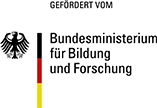A registration agreement is an important document that outlines the terms and conditions of a domain name registration. It is a legally binding contract between the registrant and the domain name registrar, and it is important to understand its contents before registering a domain name.
One aspect of the registration agreement that is particularly important is the Uniform Domain-Name Dispute-Resolution Policy (UDRP). The UDRP is a mechanism established by the Internet Corporation for Assigned Names and Numbers (ICANN) for resolving disputes over domain names.
Under the UDRP, a trademark owner can file a complaint against a domain name registrant if they believe that the registrant is using the domain name in bad faith. Examples of bad faith use include using the domain name to intentionally attract, for commercial gain, Internet users to a website by creating a likelihood of confusion with the trademark owner`s mark.
If a complaint is filed under the UDRP, the domain name registrant has the opportunity to respond and defend their use of the domain name. If the domain name registrant is found to have used the domain name in bad faith, they may be required to transfer the domain name to the trademark owner or relinquish their registration altogether.
It is important to note that the UDRP is not a substitute for trademark registration. Trademark owners should still take steps to register their trademarks with the appropriate government agencies, as this provides additional legal protections and is often required in UDRP proceedings.
When registering a domain name, it is important to carefully review the registration agreement and understand the implications of the UDRP. By doing so, domain name registrants can avoid legal disputes and protect their online presence.
